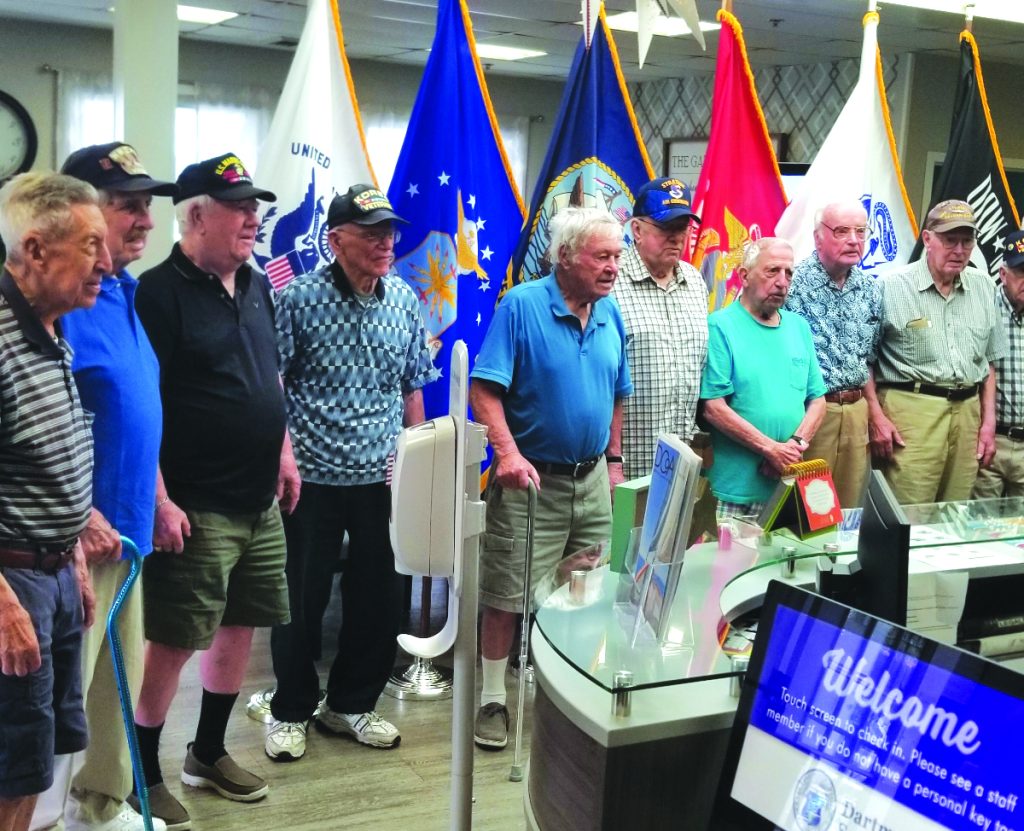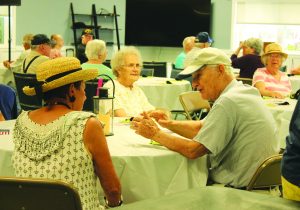For Victor Samolis, being in the service during the Korean War was a mostly positive experience.
As a Navy Seabee, a member of the Navy’s Construction Battalion, he was able to travel and see places he’d never seen before, like Cuba and Jamaica. He learned new skills that he would use in his future career like how to deal with big units of companies. And he was able to go to college on the GI bill without taking out a single loan.
“The service was the best time of my life,” said Samolis. “It influenced my whole future.”
Samolis was one of many Korean War veterans who attended a special lunch held in their honor by the Dartmouth Council on Aging. The lunch took place on July 27, the 70th anniversary of ending hostilities in Korea.
Not everyone had as positive experiences as Samolis. According to the U.S. Department of Defense about 37,000 Americans lost their lives during the war, more than 92,000 were wounded and 8,000 were missing.
The war began when troops from the North Korean People’s Army crossed the 38th parallel and invaded South Korea on June 25, 1950. It ended on July 27, 1953, when the Korean Armistice Agreement was signed, essen-tially stopping the fighting.
Speaking at the event, Matt Brouillette, Veteran Affairs Agent for Dartmouth, said the time was right to recognize the men and women who fought in this war.
“With veterans getting older, this is our last great opportunity to put something together to honor the veterans who served as well as the widows or family members,” he said.
“Veterans are one of our priorities so whatever their needs are, if we can help, we will always be there,” said Maria Connor, president of the Dartmouth Friends of the Elderly which sponsored the event.
It’s important to recognize Korean War vets now, she said.
“We felt it’s 70 years (since the war ended), you’re not going to wait until 75 or 100 years. For goodness sake, some of these veterans are in their 90s now,” said Connor.
Veterans and family members were treated to live band music and a buffet lunch at the event. Many wore military baseball caps identifying the branch they served in.
Nancy Urban was at the lunch out of respect for her husband Frank Roderiques who had died not long before the event. Roderiques served on a Navy carrier, she said.
“I came out of respect for him and his service,” said Urban.



Recent Comments